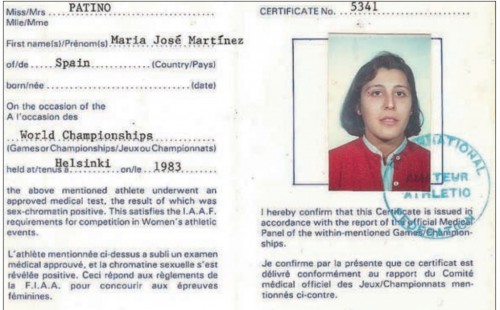When the private becomes so very public: The case of Caster Semenya
 By Rachael Liberman
By Rachael Liberman
As the controversy surrounding 18-year-old Caster Semenya’s gender (note the incorrect usage of “gender” as opposed to “sex”) verification test continues to raise questions about racism and sexism, issues of humiliation and trauma have surfaced as well. London’s The Guardian quoted Leonard Chuene, head of Athletics South Africa, as saying, “If gender tests have to take place, they should have been done quietly. It is a taboo subject. How can a girl live with this stigma? By going public on these tests, the IAFF (International Association of Athletics Foundation) has let down this young child, and I will fight tooth and nail to protect her.” While organizations like the African National Congress and Athletics South Africa continue to speak out against the test, which takes weeks to process, Samenya’s voice has been noticeably absent from news coverage.
This makes sense when one considers her private, yet public situation. Semenya became under suspicion when she drastically improved her 800 meter time from 2 minutes and 8 seconds at the IAFF world junior championships in Poland last July to 1 minute and 55.45 seconds last week in Berlin – transforming her unknown status to senior world champion. That being said, the speculation regarding her “gender” (not sex) began before she won this latest race in Berlin. According to The Guardian, “But her rags-to-riches journey had been called into question even before the starting gun. The athlete’s muscular build, deep voice, facial hair and suddenly improved performances led to a frenzy of speculation that the fastest woman in the world over two laps is, in fact, a man.” Now, after information leaked to the media regarding the test, this 18-year-old star athlete is currently being accused of actually being a man on an international stage. So, as she was accepting her award – an award she hesitated to receive due to the circumstances – her presence was laden with judgment, speculation and controversy.
Now, it would be limiting to focus on the argument that this gender verification test suggests that women cannot be as athletically successful as men. The speculation that Semenya was given this test as a refusal to accept her ability as an African female athlete is the watered-down version of what is actually happening. Her drastic time improvement, coupled with her failure to adopt the “correct” gender performance (see Judith Butler) is part of a long history of inspecting successful female athletes, mostly under investigation due to steroid suspicion. In this particular case, Semenya has already passed steroid testing so all that is left is that she possesses too many genetic male characteristics. Family members as well as members from her village have been quoted in numerous publications, including BBC News, as vouching for her female sex status and assert that the test is ridiculous. However, after reading numerous reports on her class status and her rural living conditions, it becomes clear that chromosome testing is not part of typical health care. If this gender verification test proves that Semenya aligns with the male genetic makeup, the shock would not only come to the athletic community, but to her family and friends as well. Recent reports have leaked information that she does, indeed, have a testosterone count three times higher than normal women (this contributed to the IAFF decision to conduct the gender verification test ), but again, the official “gender” results will hang over Semenya’s head for weeks. How can this be done tastefully and respectfully? The unfortunate answer is that it has officially arrived at “spectacle” status – and in the end, Caster Semenya will suffer long after the press moves on to another scandal.
 Gender and Sexuality from A Companion to the Classical Tradition
Gender and Sexuality from A Companion to the Classical Tradition
 Sport and Globalization from The Blackwell Companion to Globalization
Sport and Globalization from The Blackwell Companion to Globalization





1468-0491/asset/society_affiliation_image.gif?v=1&s=859caf337f44d9bf73120debe8a7ad67751a0209)

Caster Semenya’s gender seems to be a hot topic academically. See a the latest post on our sister site: http://socialpsychologyeye.wordpress.com/2009/08/25/gender-bias-in-track-and-chess/
This a saddening case. I appreciated Michael Johnson’s call for the IAFF to keep such testing private in the future. To make assumptions about Semenya’s abilities and her behavior so unabashedly shows the continued existence of a gendered hierarchy in the international sporting community.
This case might also point to the false dichotomy of “gender” which is being challenged more broadly in social institutions.
While it will surely (unfairly) challenge Semenya and her family, is it possible that this case might force a move forward for gender equality–for all–in sports?
Keri